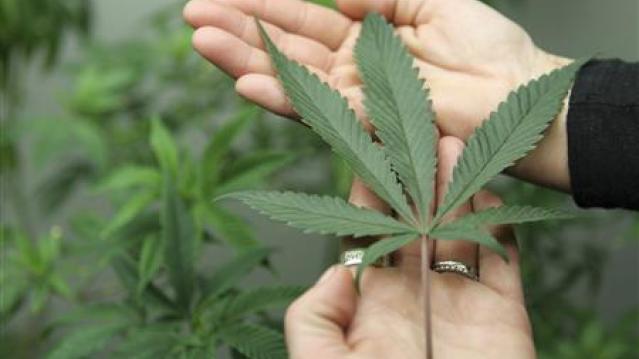American Kids Aren’t Such Stoners After All

Turns out the young people of America are not as high as you thought they were. The use of illicit drugs, alcohol and tobacco among young people has been falling, according to new data.
While the nationwide rate of illicit drug use has gone up, the percentage of youths using illicit drugs has declined, according to a report from the Substance Abuse and Mental Health Service Administration (SAMSHA), part of the Department of Health and Human Services. The illicit drugs include marijuana/hashish, cocaine (including crack), hallucinogens, heroin, inhalants or prescription-type psychotherapeutics.
Among youths aged 12 to 17, the rate of illicit drug use was down to 8.8 percent in 2013 from 9.5 to 11.6 percent in the years 2002 to 2007, the SAMSHA study said.
Related: New Lifetime Estimate of Obesity Costs: $92,235 Per Person
But in 2013, drug use among those 12 or older was up to 9.4 percent from the 7.9 to 8.7 percent found between 2002 and 2009. The rise was attributed to increased rates of marijuana use, both medical and nonmedical, among adults aged 26 and older — and that rise probably doesn't fully reflect the recent legalization of recreational marijuana in Colorado, Washington, Oregon and Alaska.
The report also suggested that alcohol is losing some of its allure for the young.
Between 2002 and 2013, the percentage of underage people who drank declined from 28.8 percent to 22.7 percent. In addition, the proportion of binge drinkers — those who consumed five or more drinks during one occasion — decreased from 19.3 percent to 14.2 percent in the same years.
In additional good news, tobacco and cigarette use among all age groups has declined sharply since 2002.
Small Business Owners Say They’re Raising Worker Pay
A record percentage of small business owners say they are raising pay for their workers, according to the latest monthly jobs report from the National Federation of Independent Business, based on a survey of 10,000 of the group’s members. A seasonally adjusted net 35 percent of small businesses say they are increasing compensation. “They are increasing compensation at record levels and are continuing to hire,” NFIB President and CEO Juanita Duggan said in a statement accompanying the report. “Post tax reform, concerns about taxes and regulations are taking a backseat to their worries over filling open positions and finding qualified candidates.”
The US Is Running Short on More Than 200 Drugs

The U.S. is officially running short on 202 drugs, including some medical staples like epinephrine, morphine and saline solution. “The medications most vulnerable to running short have a few things in common: They are generic, high-volume, and low-margin for their makers—not the cutting-edge specialty drugs that pad pharmaceutical companies’ bottom lines,” Fortune’s Erika Fry reports. “Companies have little incentive to make the workhorse drugs we use most.” And much of the problem — “The situation is an emergency waiting to be a disaster,” one pharmacist says — can be tied to one company: Pfizer. Read the full story here.
Chart of the Day: Could You Handle a Sudden $400 Expense?

More Americans say they are living comfortably or at least “doing okay” financially, according to the Federal Reserve’s Report on the Economic Well-Being of U.S. Households in 2017. At the same time, four in 10 adults say that, if faced with an unexpected expense of $400, they would not be able to cover it or would cover it by selling something or borrowing money. That represents an improvement from 2013, when half of all adults said they would have trouble handling such an expense, but suggests that many Americans are still close to the edge when it comes to their personal finances.
Kevin Brady Introduces Welfare Reform Bill

The Tax Policy Center’s Daily Deduction reports that Rep. Kevin Brady (R-TX), chair of the House Ways and Means Committee on Friday introduced The Jobs and Opportunity with Benefits and Services (JOBS) for Success Act (H.R. 5861). “The bill would rename the Temporary Assistance for Needy Families (TANF) program and target benefits to the lowest-income households. Although the House GOP leadership promised to include an expansion of the Earned Income Tax Credit as part of an upcoming welfare reform bill, this measure does not appear to include any EITC provisions.” The committee will mark up the bill on Wednesday.



